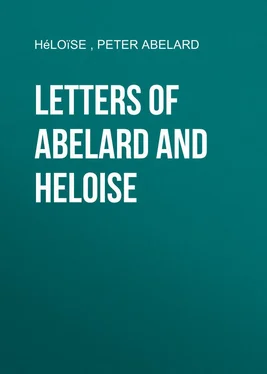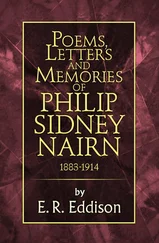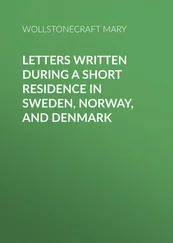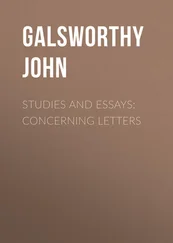Array Héloïse - Letters of Abelard and Heloise
Здесь есть возможность читать онлайн «Array Héloïse - Letters of Abelard and Heloise» — ознакомительный отрывок электронной книги совершенно бесплатно, а после прочтения отрывка купить полную версию. В некоторых случаях можно слушать аудио, скачать через торрент в формате fb2 и присутствует краткое содержание. Жанр: foreign_antique, foreign_prose, на английском языке. Описание произведения, (предисловие) а так же отзывы посетителей доступны на портале библиотеки ЛибКат.
- Название:Letters of Abelard and Heloise
- Автор:
- Жанр:
- Год:неизвестен
- ISBN:нет данных
- Рейтинг книги:3 / 5. Голосов: 1
-
Избранное:Добавить в избранное
- Отзывы:
-
Ваша оценка:
- 60
- 1
- 2
- 3
- 4
- 5
Letters of Abelard and Heloise: краткое содержание, описание и аннотация
Предлагаем к чтению аннотацию, описание, краткое содержание или предисловие (зависит от того, что написал сам автор книги «Letters of Abelard and Heloise»). Если вы не нашли необходимую информацию о книге — напишите в комментариях, мы постараемся отыскать её.
Letters of Abelard and Heloise — читать онлайн ознакомительный отрывок
Ниже представлен текст книги, разбитый по страницам. Система сохранения места последней прочитанной страницы, позволяет с удобством читать онлайн бесплатно книгу «Letters of Abelard and Heloise», без необходимости каждый раз заново искать на чём Вы остановились. Поставьте закладку, и сможете в любой момент перейти на страницу, на которой закончили чтение.
Интервал:
Закладка:
Abelard , having given his scholars a vacation, returned into Britany to visit his designed spouse, and to acquaint her with what had passed. She was not at all concerned at her uncle's displeasure; but that which troubled her was, the resolution which she saw her lover had taken to marry her, She endeavoured to dissuade him from it with all the arguments she could think of. She begun with representing to him the wrong he did himself in thinking of marriage: that as she never loved him but for his own sake, she preferred his glory, reputation, and interest, before her own. I know my uncle, said she, will never be pacified with any thing we can do, and what honour shall I get by being your wife, when at the same time I certainly ruin your reputation? What curse may I not justly fear, should I rob the world of so eminent a person as you are? What an injury shall I do the Church? how much shall I disoblige the learned? and what a shame and disparagement will it be to you, whom Nature has fitted for the public good, to devote yourself entirely to a wife? Remember what St. Paul says, Art thou loosed from a wife? seek not a wife. If neither this great man, not the fathers of the church, can make you change your resolution, consider at least what your philosophers say of it. Socrates has proved, by many arguments, that a wife man ought not to marry. Tully put away his wife Terentia; and when Hircius offered him his sister in marriage he told him, he desired to be excused, because he could never bring himself to divide his thoughts between his books and his wife. In short, said she, how can the study of divinity and philosophy comport with the cries of children, the songs of nurses, and all the hurry of a family? What an odd fight will it be to see maids and scholars, desks and cradles, books and distaffs, pens and spindles, one among another? Those who are rich are never disturbed with the care and charges of housekeeping; but with you scholars it is far otherwise 5 5 Heloissa dehortabat me nuptiis. Nuptia non conveniunt cum philosophia , &c. Oper. Abel. p 14.
.
He that will get an estate must mind the affairs of the world, and consequently is taken off from the study of divinity and philosophy. Observe the conduct of the wife Pagans in this point, who preferred a single life before marriage, and be ashamed that you cannot come up to them. Be more careful to maintain the character and dignity of a philosopher. Don't you know, that there is no action of life which draws after it so sure and long a repentance, and to so little purpose? You fancy to yourself the enjoyments you shall have in being bound to me by a bond which nothing but death can break: but know there is no such thing as sweet chains; and there is a thousand times more glory, honour, and pleasure, in keeping firm to an union which love alone has established, which is supported by mutual esteem and merit, and which owes its continuance to nothing but the satisfaction of seeing each other free. Shall the laws and customs which the gross and carnal world has invented hold us together more surely than the bonds of mutual affection? Take my word for it, you'll see me too often when you see me ev'ry day: you'll have no value for my love nor favours when they are due to you, and cost you no care. Perhaps you don't think of all this at present; but you'll think of nothing else when it will be too late. I don't take notice what the world will say, to see a man in your circumstances get him a wife, and so throw away your reputation, your fortune and your quiet. In short, continued she, the quality of mistress is a hundred times more pleasing to me than that of a wife. Custom indeed, has given a dignity to this latter name, and we are imposed upon by it; but Heaven is my witness, I had rather be Abelard's mistress than lawful wife to the Emperor of the whole world. I am very sure I shall always prefer your advantage and satisfaction before my own honour, and all the reputation, wealth, and enjoyments, which the most splendid marriage could bring me. Thus Heloise argued, and added a great many more reasons, which I forbear to relate, lest I should tire my reader. It is enough for him to know, that they are chiefly grounded upon her preference of love to marriage, and liberty to necessity.
We might therefore suppose that Heloise was afraid lest marriage should prove the tomb of love. The Count de Buffi, who passes for the translator of some of her Letters, makes this to be her meaning, though cloathed in delicate language. But if we examine those which she writ to Abelard after their separation, and the expressions she uses to put him in mind, that he was indebted for the passion she had for him to nothing but love itself, we must allow that she had more refined notions, and that never woman was so disinterested. She loved Abelard 'tis true; but she declared it was not his sex that she most valued in him.
Some authors 6 6 D'ctionnaire de Moreri
are of opinion, that it was not an excess of love which made Abelard press Heloise to marriage, but only to quiet his conscience: but how can any one tell his reasons for marriage better than he himself? Others say 7 7 Fran. d'Amboise.
that if Heloise did really oppose Abelard's design of marrying her so earnestly, it was not because she thought better of concubinage than a married life, but because her affection and respect for her lover leading her to seek his honour and advantage in all things, she was afraid that by marrying him she should stand between him and a bishoprick, which his wit and learning well deserved. But there is no such thing in her Letters, nor in the long account which Abelard has left us of the arguments which his mistress used to dissuade him from marriage. These are the faults of many authors, who put such words in the mouths of persons as are most conformable to their own ideas. It is often more advantageous, that a woman should leave her lover free for church dignities, than render him incapable of them by marriage: but is it just therefore to suppose that Heloise had any such motives? There is indeed a known story of a man that was possessed of a prebend, and quitted it for a wife. The day after the wedding, he said to his bride, My dear, consider how passionately I loved you, since I lost my preferment to marry you. You have done a very foolish thing, said she; you might have kept that, and have had me notwithstanding.
But to return to our lovers. A modern author, who well understood human nature, has affirmed, "That women by the favours they grant to men, grow she fonder of them; but, on the contrary, the men grow more indifferent 8 8 M. de la Bruyere.
." This is not always true, Abelard was not the less enamoured with Heloise after she had given him the utmost proofs of her love; and their familiarity was so far from having abated his flame, that it seems all the eloquence of Heloise could not persuade Abelard that he wronged himself in thinking to marry her. He admired the wit, the passion, and the ingenuity of his mistress, but in these things he did not come short of her. He knew so well how to represent to her the necessity of marriage, the discourse which he had about it with Fulbert, his rage if they declined it, and how dangerous it might be to both of them, that at last she consented to do whatever he pleased: but still with an inconceivable reluctance, which showed that she yielded for no other reason but the fear of disobliging him.
Abelard was willing to be near his mistress till she was brought to bed, which in a short time she was of a boy. As soon as Heloise was fit to go abroad, Abelard carried her to Paris, where they were married in the most private manner that could be, having no other company but Fulbert, and two or three particular friends. However, the wedding quickly came to be known. The news of it was already whispered about; people soon began to talk of it more openly, till at last they mentioned it to the married pair.
Читать дальшеИнтервал:
Закладка:
Похожие книги на «Letters of Abelard and Heloise»
Представляем Вашему вниманию похожие книги на «Letters of Abelard and Heloise» списком для выбора. Мы отобрали схожую по названию и смыслу литературу в надежде предоставить читателям больше вариантов отыскать новые, интересные, ещё непрочитанные произведения.
Обсуждение, отзывы о книге «Letters of Abelard and Heloise» и просто собственные мнения читателей. Оставьте ваши комментарии, напишите, что Вы думаете о произведении, его смысле или главных героях. Укажите что конкретно понравилось, а что нет, и почему Вы так считаете.












